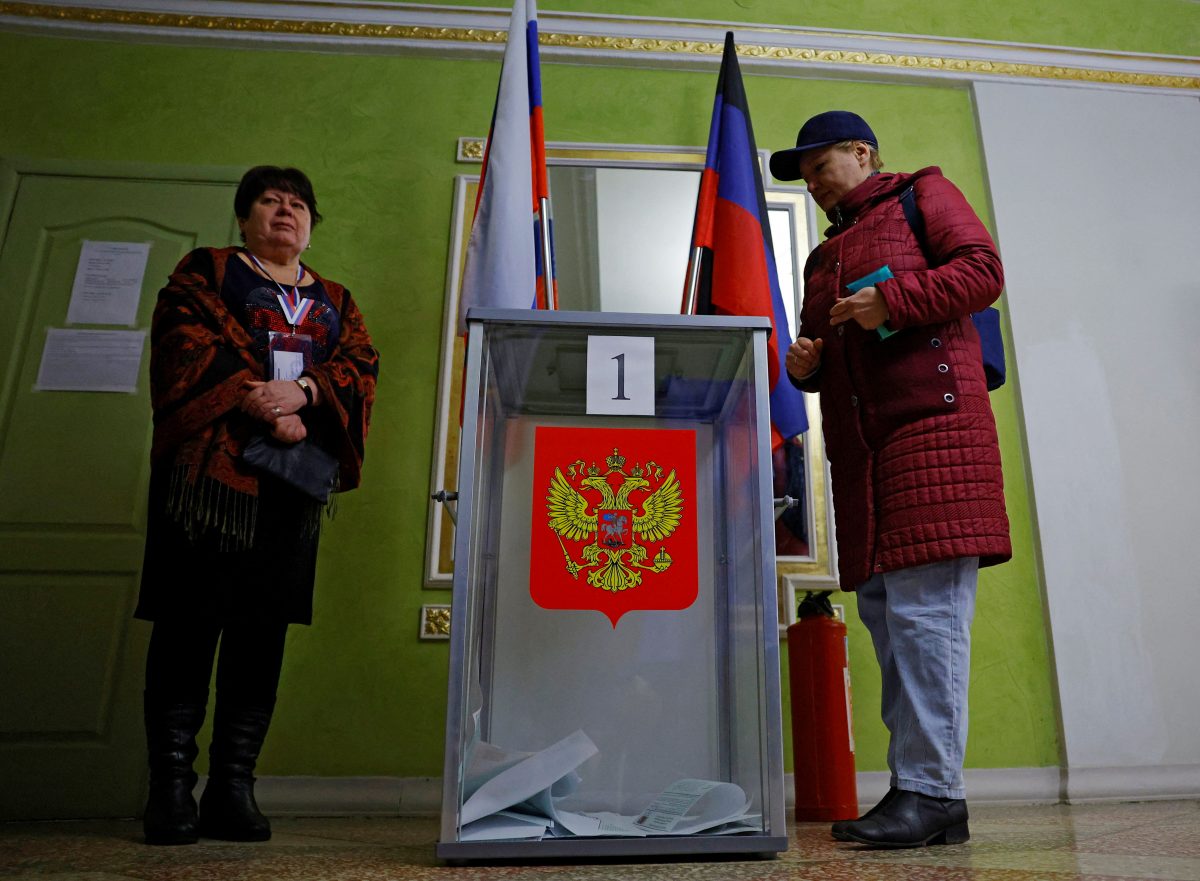MOSCOW, (Reuters) – A Ukrainian missile attack killed two people in western Russia and a separate drone strike set an oil refinery ablaze today, the second day of an election that President Vladimir Putin has accused Kyiv of trying to disrupt.
The Ukraine war has cast a shadow over voting in the three-day presidential election, which is all but certain to hand Putin six more years in the Kremlin.
In the Belgorod region where cross-border attacks from Ukraine have become part of daily life, the governor reported the deaths of a man and a woman. Video obtained by Reuters showed fires ablaze and air raid sirens sounding on the empty streets of Belgorod city.
Dmitry Azarov, governor of the Samara region 850 km (530 miles) southeast of Moscow, said the Syzran refinery was on fire but an attack on a second refinery had been thwarted.
Russia’s Defence Ministry said it had repelled attempts by Ukrainian forces to cross the border into Belgorod region. Governor Gladkov said that, given “the current situation”, schools in much of the region would close on Monday and Tuesday, and that shopping centres in Belgorod city would be shut on Sunday and Monday.
Ukraine has staged repeated strikes this week on Russian soil, particularly against oil refineries. Russia mounted its deadliest attack in weeks on Friday when its missiles hit a residential area in Ukraine’s Black Sea port city of Odesa, killing at least 20 people and wounding more than 70.
Putin’s hold on power is not under threat. Aged 71 and in office as president or prime minister since the last day of 1999, he dominates Russia’s political landscape and none of the other three candidates on the ballot paper presents any credible challenge.
His leading critics are in prison or have fled abroad, prompting the opposition to call the vote a sham. Russia’s best known opposition politician, Alexei Navalny, died in an Arctic penal colony last month and his supporters have accused Putin of having him killed. The Kremlin denied that, and his death certificate said he died of natural causes.
HIGH TURNOUT IN SOME REGIONS
The Kremlin is hoping for a high turnout to demonstrate that the country is united behind Putin.
Overall turnout had topped 40% by the afternoon of day two. Some of the highest rates – approaching 70% – were reported in the Belgorod region where the missile strike occurred and in Russian-controlled regions of Ukraine where Kyiv says voting is illegal and void.
Russia’s governing party, United Russia, said on Saturday that it was facing a widespread denial of service attack – a form of cyberattack aimed at paralysing web traffic – and had suspended non-essential services to repel it.
State news agency RIA quoted a senior telecoms official as saying the level of cyberattacks against Russia was “unprecedented”, and blaming it on Ukraine and Western countries. He said some of the activity had been traced to IP addresses in Western Europe and North America.
Friday’s voting saw a handful of protests including the pouring of dyed liquid into ballot boxes and the throwing of a Molotov cocktail at a polling station in Putin’s home town, as well as reported cyber attacks.
The head of the electoral commission, Ella Pamfilova, said on Friday that people who tried to disrupt the voting were “scumbags” and that they could face up to five years in prison.






